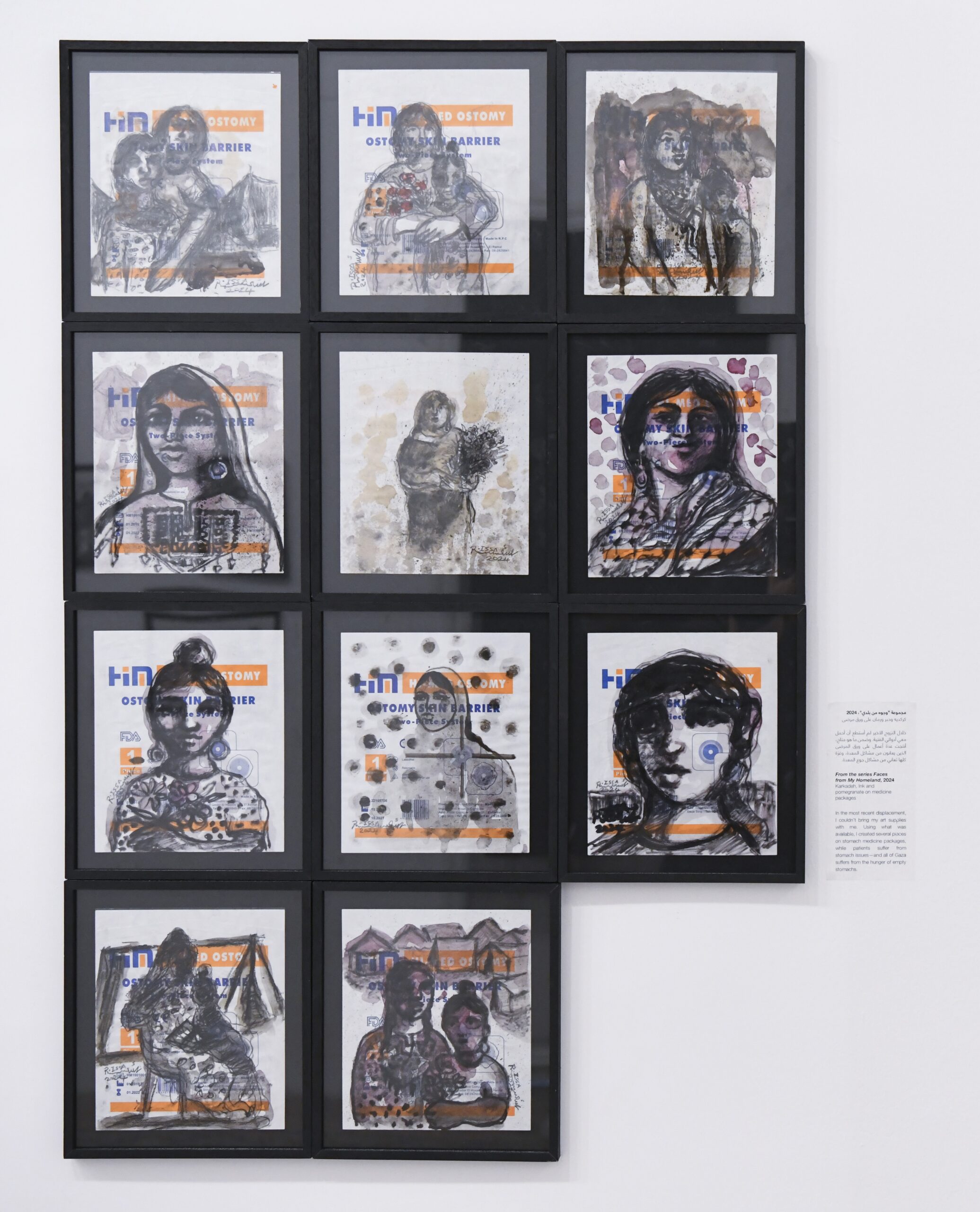
Installation view of Raed Issa’s Faces From My Homeland, 2024, at Darat al Funun, Amman, Jordan. Photograph courtesy of Darat al Funun.
The paintings highlight the gendered impacts of Israel’s ongoing genocide, now spanning more than 600 days, a seemingly inexhaustible attempt to devastate and eliminate Palestinian life. Women in Gaza fight to protect their children, provide for their families, care for the injured and mourn the loss of loved ones. The ordinary materiality of the medical packets emphasizes this common struggle in a war that has deliberately demolished the lines between home and battleground. Here packaging for stomach medicine becomes a canvas, and drinks once shared among friends become paint.
Yet it is the individuality of each figure in the grid—her age, posture, style, gaze, circumstances—that draws the eye. Issa’s artwork speaks of steadfastness: how people survive, bear witness and create. Like Hala Shoman’s article in this issue, which documents in harrowing detail, Israel’s reproductive genocide on Gaza, his paintings underscore Palestinian women’s determination, and their labor, to make life possible in conditions of death, displacement, homelessness and hunger. Their faces communicate strength and presence, sustaining family and community.
In Issa’s words, Faces from My Homeland witnesses and honors “the women of Gaza who endured and were patient in the face of all this harm, killing and displacement—and are still struggling to live with dignity, freedom and peace.” It is a fitting cover for MERIP’s spring issue, which asks the question of why gender matters now.
Read the first article in MER issue 314 “New Gender Frontlines.”
